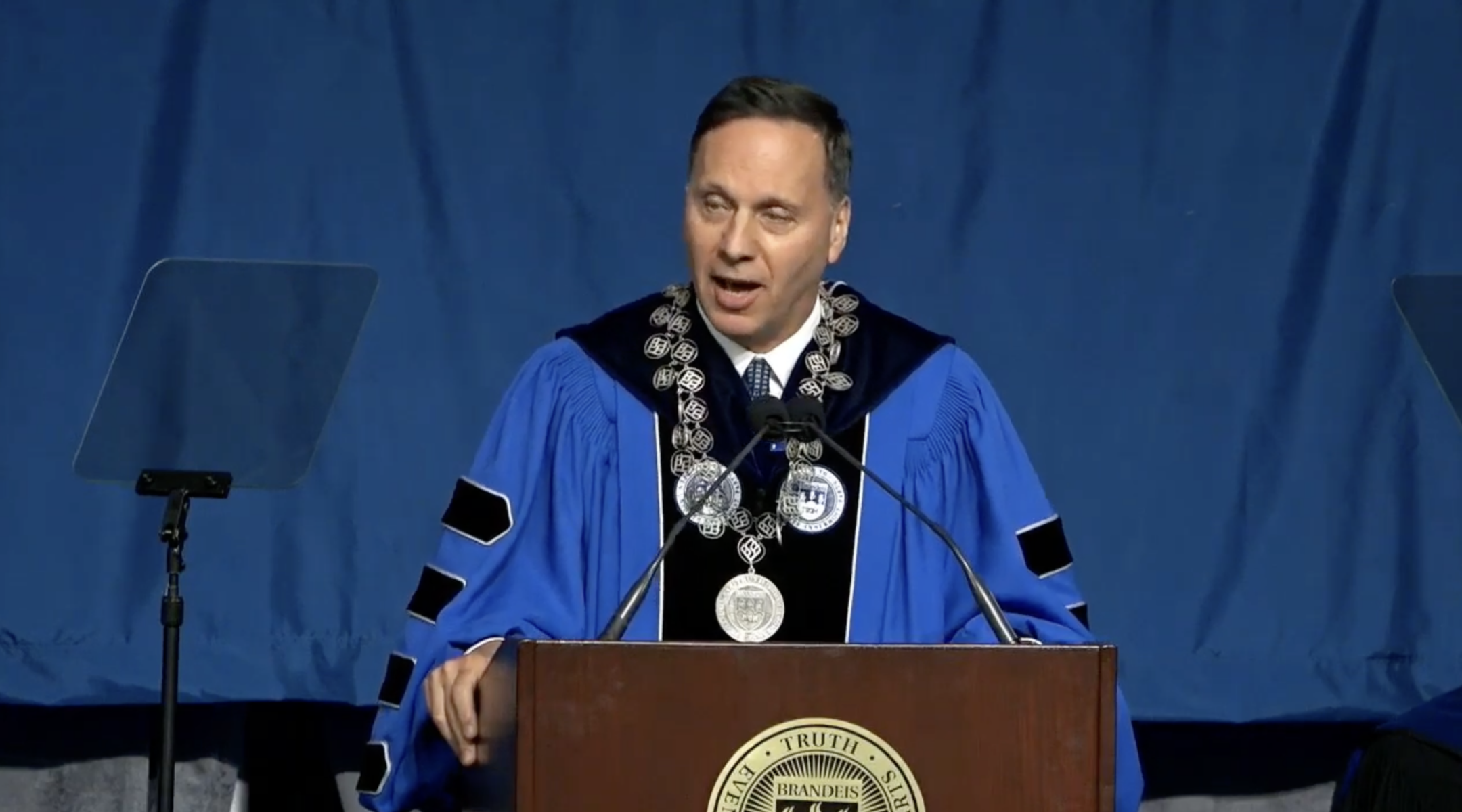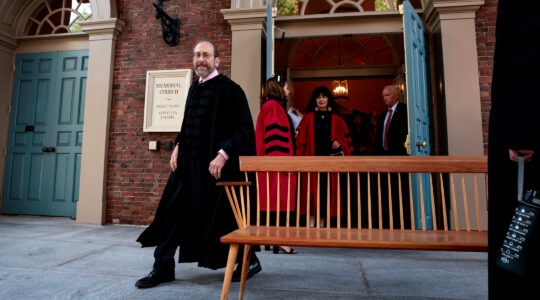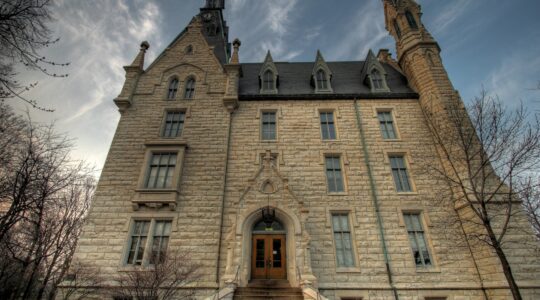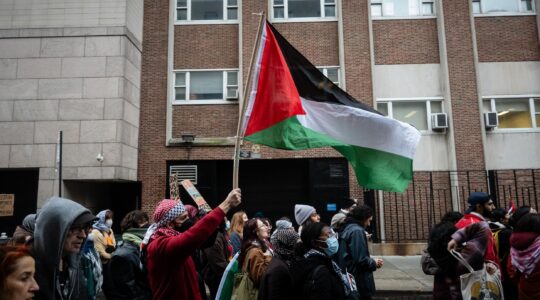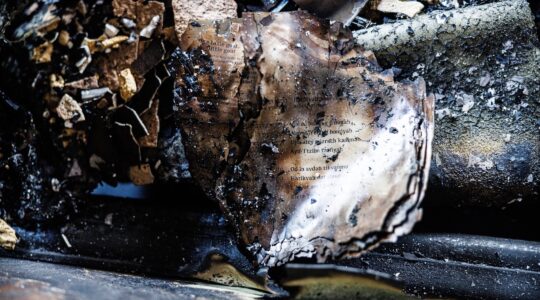Brandeis University President Ronald Liebowitz announced his resignation Wednesday morning after he lost a vote of no confidence from faculty.
Liebowitz’s resignation, which takes effect Nov. 1, comes amid steep financial challenges for the historically Jewish university. Brandeis announced in May that it would lay off 60 employees and restructure several programs to cut costs.
The motion calling for a no-confidence vote, which was non-binding, cited both the budget crisis and Liebowitz’s handling of student protests over the Israel-Hamas war in Gaza. At particular issue was a November 2023 protest against the school’s decision to ban its chapter of Students for Justice in Palestine at which seven people, including students, were arrested by police.
In an email to the university community, Lisa Kranc, the chair of Brandeis’ Board of Trustees, said Liebowitz would “continue to advocate for Brandeis and its values” as president emeritus and praised “the role President Liebowitz played over the past year in speaking out against antisemitism in our world and on college campuses.”
The former president of Middlebury College, Liebowitz, who is Jewish, was named president in 2016 and received a five-year contract extension in 2021. In his own email to the community, Liebowitz said he had resigned with some ambivalence.
“I have done so with mixed emotions because this is an exceptional institution, which carries great meaning, especially at this time, due to the reason for its founding,” he wrote. He added, “I resign knowing that the university will be in good hands.”
Arthur Levine, the retired president of Columbia University’s Teachers College and a 1970 Brandeis graduate, will be interim president.
Liebowitz joins a wave of university presidents to exit their positions at least in part as a result of the pro-Palestinian protests that swept campuses last year. The presidents of the University of Pennsylvania and Harvard University exited following criticism of their congressional testimony on campus antisemitism, while the leaders of several other schools — including, last month, Columbia University — have cited the protests among their reasons for stepping down.
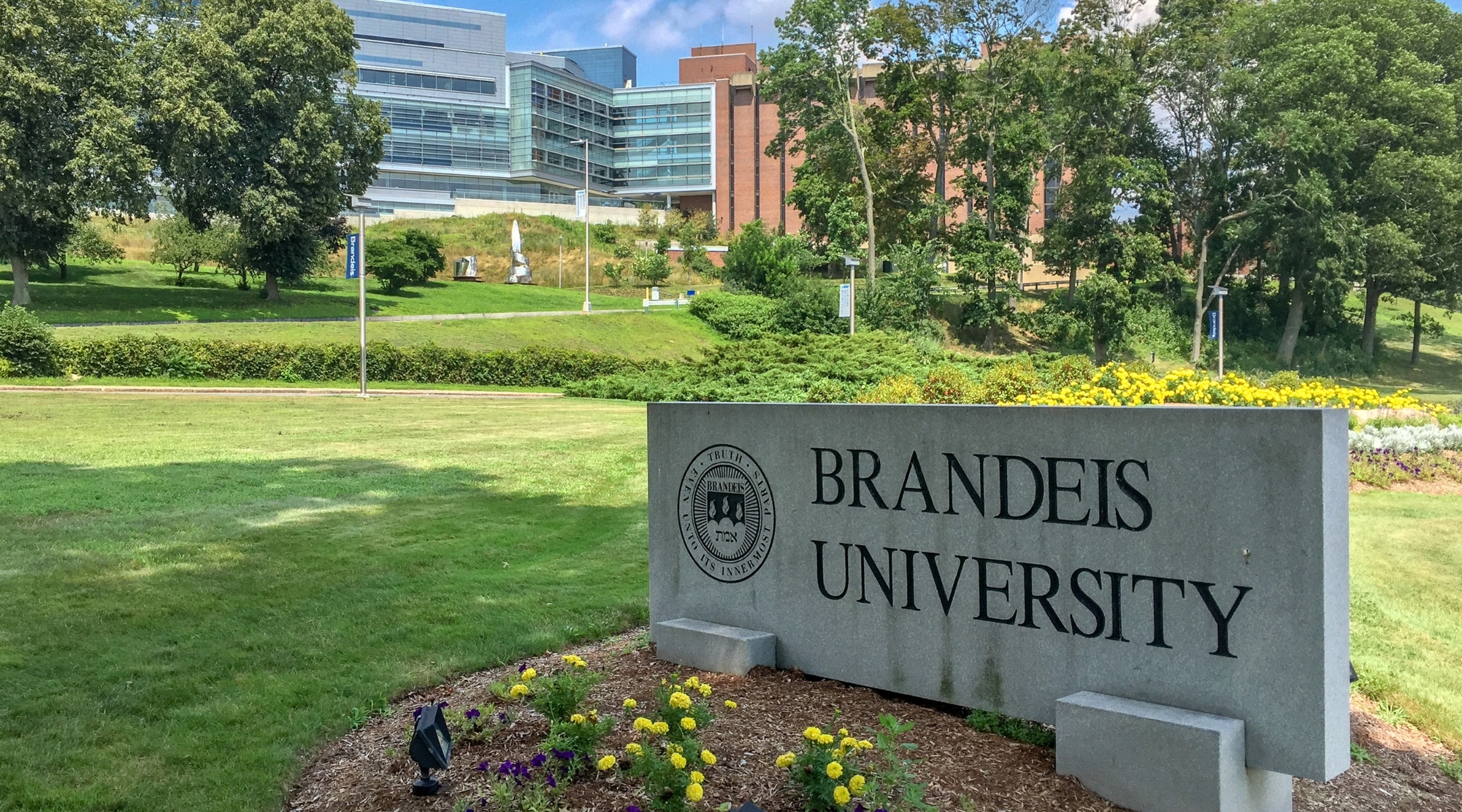
A sign on the Brandeis University campus with the school’s emblem and motto reads, “Truth even unto its innermost parts.” (Wikimedia)
A no-confidence vote had first been proposed in May, at the time of the layoffs, according to Brandeis’ student newspaper, The Justice. Liebowitz lost the vote, whose results were announced this week, by only 10 votes, with 159 in favor, 149 against and 26 abstaining. More than three-quarters of all eligible faculty participated in the vote, according to Jeffrey Lenowitz, a professor who chairs the university’s Faculty Senate.
“The Faculty note with grave concern a consistent pattern of damaging errors of judgment and poor leadership by President Liebowitz,” read the motion calling for a vote. “The results this year include badly handled budget shortfalls, failures of fundraising, excessive responses to student protests, indifference to faculty motions, and the recent damaging staff layoffs. The faculty have no confidence in the President’s leadership and we call upon the Board of Trustees to act.”
Brandeis had gained attention in October when a resolution condemning Hamas had failed to pass a body of the university’s Student Union Senate. Just weeks later, the school banned its SJP chapter, saying the group “openly supports Hamas,” which prompted the November protest and arrests. Following those arrests, the school commissioned an investigation of the incident and drew criticism from FIRE, a campus free speech watchdog.
Brandeis was the first of a series of schools to ban SJP, and the decision was made just as Liebowitz laid out a roadmap for what he said should be efforts by schools across the country to stamp out antisemitism on their campuses.
This spring, just before the budget cuts were announced, the school extended its transfer deadline in an open appeal to Jewish students who felt alienated by the anti-Israel protests taking place on campuses across the country.
Jonathan Sarna, a historian and professor who is the former director of the Schusterman Center for Israel Studies at Brandeis, said he “proudly” voted against the motion, and lauded Liebowitz’s response to Hamas’ Oct. 7 attack on Israel.
“When the history of how American universities responded to Oct. 7 is written, I think Ron Liebowitz will be remembered as one of the few presidents who spoke up courageously on Israel’s behalf and then acted upon his conviction,” Sarna told the Jewish Telegraphic Agency. “And really as a result of that, Brandeis today is known as a safe haven for Jews, Israelis and for their advocates.”
JTA has documented Jewish history in real-time for over a century. Keep our journalism strong by joining us in supporting independent, award-winning reporting.
